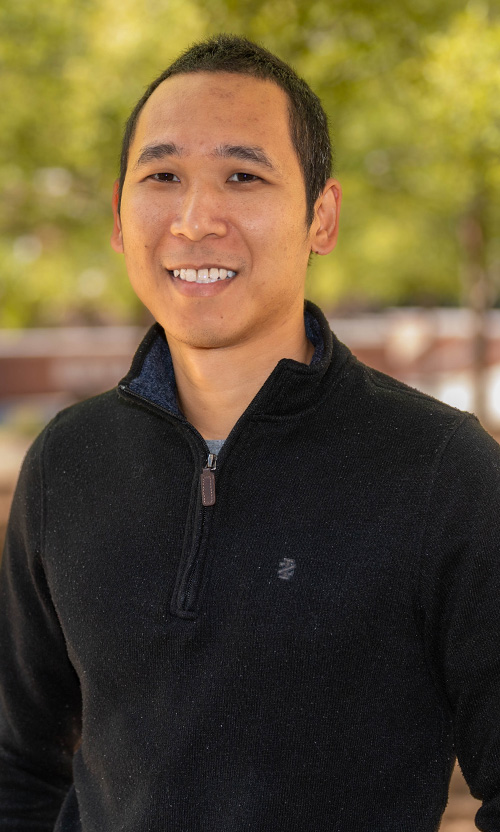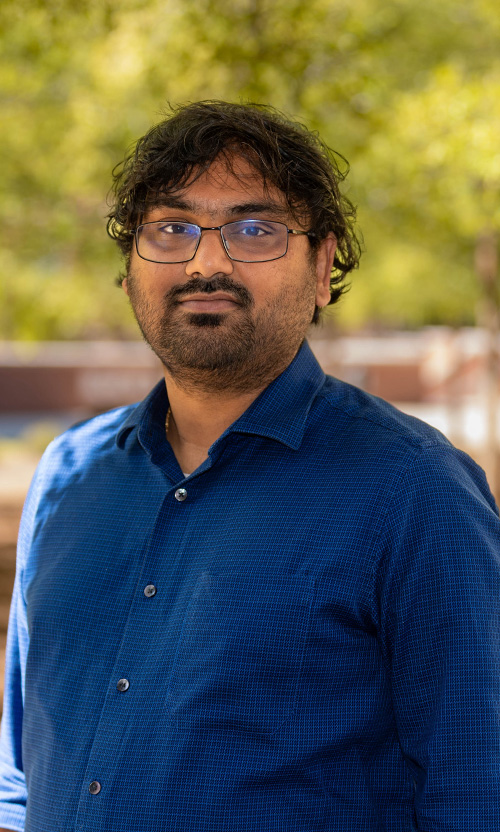Artificial intelligence fall lecture series kicks off Friday, Sept. 6
Published: Aug 30, 2024 9:00 AM
By Joe McAdory
Auburn University’s official artificial intelligence initiative, AI@AU, will host a series of Friday fall lectures – beginning, Sept. 6, from guest speakers representing academia and industry. The 10 a.m. forums are open to the public — in-person in Lowder 111 and via Zoom (https://auburn.zoom.us/j/81706339239) — and Sept. 27 and Oct. 4 in the Biggio Center for the Advancement of Teaching and Learning, ACLC Suite 259A.
“AI@AU is thrilled to host a series of forum presentations featuring distinguished guest speakers who will delve into a wide array of topics related to artificial intelligence,” said Gerry Dozier, the Charles D. McCrary Eminent Chair Professor in the Department of Computer Science and Software Engineering and technical lead for the AI@AU initiative.
“These forums are an invaluable opportunity for attendees to gain insights into the latest advancements, ethical considerations, and societal impacts of AI. By participating, guests will not only enhance their understanding of this transformative technology but also engage in meaningful discussions that can shape the future of AI. We encourage everyone to attend and be part of this exciting journey towards innovation and discovery.”
The forum presentations include:
Sept. 6: Lowder 111
Coevolving Adversarial Intelligence in Natural and Artificial Systems
Dr. Una-May O'Reilly, ALFA Group, MIT Computer Science and Artificial Intelligence Lab
Adversarial intelligence encompasses the knowledge, skills, expertise, and strategic behavior that support competition between rivals. Her goal is Artificial Adversarial Intelligence and he designs adversarially intelligent software agents. Intelligent adversaries can learn by observing how their strategies work and this allows them to improve their strategies. What then happens when adversaries on both sides of a competition improve? O’Reilly will introduce how she can automate the programming of adversarial cyber agents and replicate arms races with genetic programming and Coevolutionary algorithms.
Sept. 27: Biggio Center for the Advancement of Teaching and Learning, ACLC Suite 259A
Customer Growth & Engagement Through AI
Scott Finney, CEO, Creating Value LLC
Finney, an Auburn University graduate, entrepreneur and digital marketing expert, will share his journey from his early days at Auburn University to his current role in actively building and contributing to the AI community in Memphis, Tennessee. He'll begin by sharing my background, education, and career path, providing context for my passion for technology and innovation. The discussion will then shift to his efforts in building a thriving AI community in Memphis, where he actively engaged with both IT and business professionals to foster collaboration and growth. The core of the presentation will focus on practical applications of AI in marketing — how he uses AI to create and distribute content, advise clients, and drive meaningful customer engagement. Today, he collaborates with various businesses, from global enterprise-level companies to owner-operated mom-and-pop shops, and everything in between. Throughout the talk, he will provide actionable insights and real-world examples demonstrating AI's power in today's business landscape.
Oct. 4: Biggio Center for the Advancement of Teaching and Learning, ACLC Suite 259A
AI(deation): Artificial Intelligence in Hybrid Environments Design
Eilis Finnegan, Assistant Professor, Department of Environmental Design, Auburn University College of Architecture, Design, and Construction
The proliferation of generative diffusion AI models in the designer’s arsenal requires new kinds of courses, testing/iterating, and questioning of these tools. As these models allow one to generate text (text-text), images (text-image; image-image), animations/videos (text-video; image-video), and 3D mesh models (text-mesh; image-mesh), there is an influx of architecturally inclined, or design based, content. This exacerbated landscape is flooded on feeds and timelines; as a result, designers are encouraged to consider how these tools for production offer new ways to generate and interpret autonomy, authenticity, and authorship. This talk explores the varying uses and applications of AI for designers and discusses the production of digital environments, scenographic arrangements, and world-building, while touching upon the ways in which the environmental design program is exploring these AI generative tools as ideating methods for iterative and hybrid workflows.
Oct. 18: Lowder 111
Robust Alignment and Control with Representation Engineering
Matt Fredrickson, Associate Professor, School of Computer Science, Carnegie Mellon University
Large Language Models (LLMs) are vulnerable to adversarial attacks, which bypass common safeguards put in place to prevent these models from generating harmful output. Notably, these attacks can be transferrable to other models — even proprietary ones. This allows attackers to potentially compromise a wide range of AI systems with a single exploit and underscores a critical weakness in current AI safeguards.
In this talk, he will demonstrate how adversarial attacks work and introduce circuit breakers as a defense mechanism. Unlike refusal or adversarial training, circuit breakers directly control neural representations responsible for harmful content, offering an attack-agnostic approach. The talk will demonstrate their effectiveness in protecting text-only and multimodal language models, as well as LLM-based agents equipped with tools. Notably, this method preserves the model's performance on non-adversarial inputs, contrasting with traditional adversarial defenses for classification models. His findings suggest that achieving robust safety in generative models without compromising their capabilities may be attainable.
Nov. 1: Lowder 111
On the Topic of Artificial General Intelligence – A Panel Discussion
Anh Nguyen, Associate Professor, Department of Computer Science & Software Engineering, Samuel Ginn College of Engineering, Auburn University
Santu Karmaker, Assistant Professor, Department of Computer Science, College of Engineering & Computer Science, University of Central Florida, and former Auburn University Computer Science and Software Engineering Assistant Professor
Sathya Aakur, Assistant Professor, Department of Computer Science & Software Engineering, Samuel Ginn College of Engineering, Auburn University
As we witness the pronounced effect that large language models (LLMs), such as ChatGPT, are having on every facet of our lives, we find ourselves asking questions like, “What’s is the future of AI?”, “Will AI eventually equal and/or surpass human general intelligence?”, and if so, “What will this Artificial General Intelligence look like, act like, and be like?” In this panel discussion, guests will learn and explore, firsthand, from three leading AI experts the answers to these questions.
Nov. 15: Lowder 111
Building AI for Humanity: Emory's Approach to AI
Joe Sutherland, Director, Center for AI Learning, Emory University
Sutherland will discuss Emory's approach to building AI capability through the AI.Humanity initiative and the Center for AI Learning, and offer lessons learned from the perspectives of our faculty, student, and staff who participate in our research, curricular, co-curricular, and community service programs.
Presentations will be recorded and available for viewing, on-demand, at https://eng.auburn.edu/ai-au/forum#fall-2024-forum.
Media Contact: , jem0040@auburn.edu, 334.844.3447
The lecture series can be viewed in-person or online.




